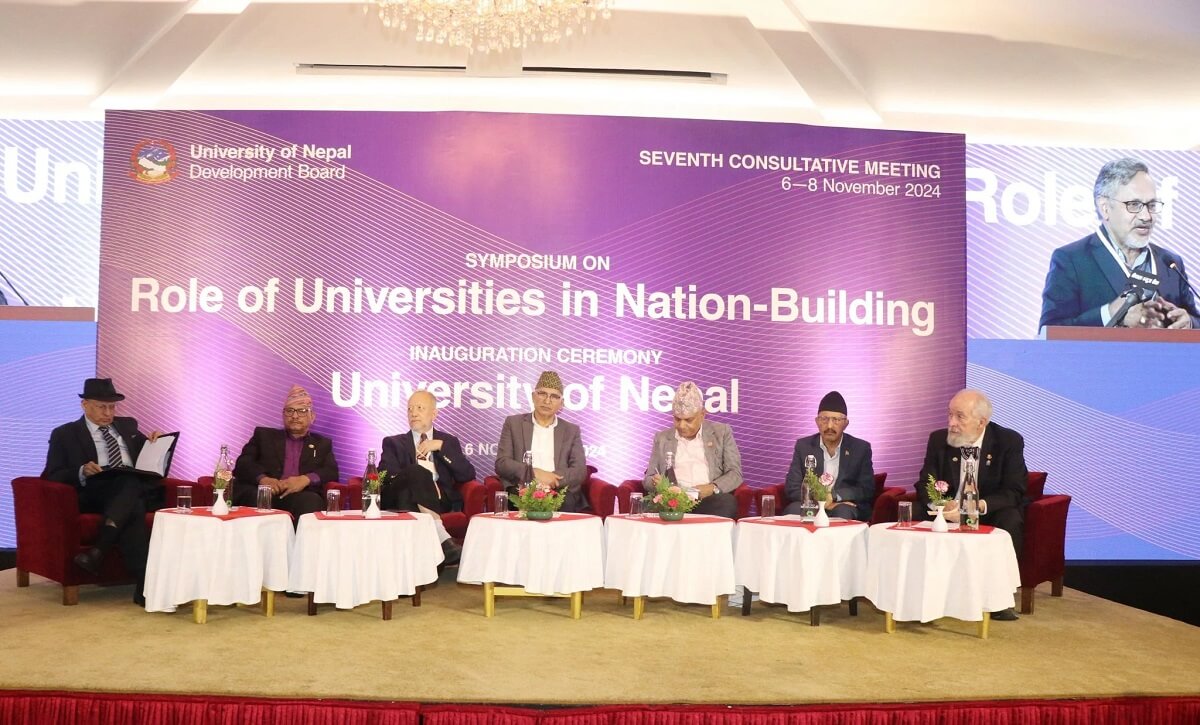Overview
The University of Nepal (UoN) is a newly established, autonomous, multidisciplinary, and research-oriented public university instituted under the University of Nepal Act 2024. Founded through federal parliamentary ratification, the University of Nepal (UoN) represents a transformative initiative in Nepal's higher education landscape.
With its core mission to redefine educational goals, relevance, quality, and accountability, the university strives to align with the national aspiration of "Prosperous Nepal, Happy Nepali."
Highlights
| Key Elements | Descriptions |
|---|---|
| Type | Autonomous, multidisciplinary public university |
| Governance | Independent Board of Trustees |
| Legal Framework | University of Nepal Act 2024, ratified by Federal Parliament |
| Academic Start Date | Undergraduate programs begin August 2026 |
| Curriculum Approach | Liberal Arts and Sciences, interdisciplinary and research-based |
| Proposed Majors | Eight interdisciplinary areas across science, humanities, and social sciences |
| Chancellor | Dr. Bindu Nath Lohani |
| Research Orientation | National relevance with global engagement |
| Campus Infrastructure | ICT-integrated, sustainable, inclusive, and modern |
| Future Goal | National reform catalyst and South Asian academic leader |

Vision and Mission
The University of Nepal envisions becoming a center of excellence in higher education and research, both within Nepal and internationally. Its mission is to foster an academic environment that supports critical thinking, creativity, and a strong sense of civic responsibility among students and scholars.
UoN aims to:
-
Produce competent graduates prepared for global challenges
-
Inspire social transformation and nation-building
-
Catalyze reform across Nepal's higher education system through innovation and demonstration
-
Establish interdisciplinary learning based on Liberal Arts and Sciences
Governance Structure
The University of Nepal operates under an independent Board of Trustees, ensuring academic freedom and institutional autonomy. This governance model enables strategic decision-making that is free from political interference, upholding transparency and accountability.
Members of the Board of Trustees:
-
Dr. Bindu N. Lohani (Chancellor)
-
Dr. Bimala Rai Paudyal
-
Prof. Bipin Adhikari
-
Ms. Chandni Joshi
-
Dr. Jagadish C. Pokharel
-
Er. Lal Krishna K C
-
Ms. Laxmi Devi Pandey
-
Mr. Madhab Paudel
-
Mr. Rameshore Khanal
-
Prof. Dr. Ram M. Shrestha
-
Dr. Shiba Thapa
Chancellor's Message
Dr. Bindu Nath Lohani, the Chancellor, emphasizes the university's commitment to innovation, academic rigor, and societal impact. He highlights UoN's mission to address 21st-century challenges through meaningful education, research, and community engagement. UoN seeks to unite diverse minds for collaborative learning, ethical leadership, and sustainable national development.
Academic Philosophy and Pedagogy
Rooted in the Liberal Arts and Sciences tradition, UoN's academic framework encourages:
-
Two-year foundational coursework
-
Two-year major-specific specialization
-
Interdisciplinary exposure and specialization
-
Integration of local context with global academic standards
The pedagogic approach includes interactive learning, student-centered classrooms, and experiential engagement.
Proposed Academic Programs (Starting August 2026)
The University of Nepal (UoN) will launch high-quality undergraduate programs across diverse disciplines. These programs will evolve in phases, but initially include:
Major Academic Areas:
-
Philosophy, Politics, Economics, and Law
-
Energy, Environment, and Climate Change
-
Computer Science, Data Science, and Artificial Intelligence
-
Physics, Chemistry, Biology, and Mathematics
-
Economics, Finance, and Business Studies
-
History, Culture, and Society
-
Literature, Communication, and Media Studies
-
Mind, Brain, and Behavior
Academic Infrastructure and Ecosystem
The university is building a dynamic academic ecosystem through:
-
Modern, purpose-built campuses
-
High-speed internet and ICT infrastructure
-
Research labs and innovation hubs
-
Student support services and mentoring
-
Sustainable and inclusive learning spaces
Faculty and Research
UoN prioritizes recruiting highly qualified faculty and researchers with national and international exposure. The university will encourage research that addresses Nepal's local needs while contributing to global knowledge.
Research priorities include:
-
Sustainable development and climate change
-
Digital transformation and AI
-
Social justice, equity, and governance
-
Behavioral science and public health
National and International Collaborations
UoN actively seeks collaborations with:
-
Global universities and think tanks
-
Multilateral institutions
-
Government agencies and local communities
These partnerships will promote exchange programs, joint research initiatives, and knowledge transfer.
Founding and Legal Framework
The Government of Nepal established the University of Nepal Infrastructure Development Preparatory Board on April 2, 2021, under the Development Committee Act, 2013 (1956 AD). This preparatory effort laid the foundation for UoN as an institution governed under federal law.
Salient Features
-
Autonomous governance through the Board of Trustees
-
Emphasis on academic freedom and accountability
-
Liberal Arts and Sciences curriculum
-
High-standard faculty recruitment and retention
-
Phased expansion of schools and faculties
-
Transparent and merit-based admission
-
Inclusive, need-sensitive financial aid
-
Multilingual and multicultural academic context
-
Regional relevance with international outlook
Future Goals
UoN aspires to:
-
Be ranked among the leading South Asian universities
-
Shape future policymakers, entrepreneurs, and innovators
-
Serve as a model for reforming higher education across Nepal
-
Bridge gaps between academia, industry, and community
Conclusion
The University of Nepal is positioned as a transformative force in Nepal’s education sector. With its autonomous framework, innovative academic model, and visionary leadership, UoN aims to produce future-ready graduates, drive impactful research, and contribute to sustainable development and social progress.
For prospective students, educators, policymakers, and global academic partners, the University of Nepal offers an opportunity to be part of a forward-thinking, purpose-driven academic community that is redefining the future of higher education in Nepal.











